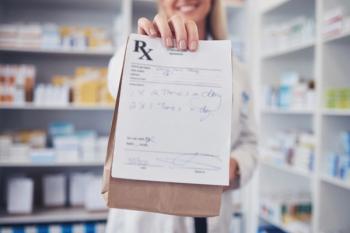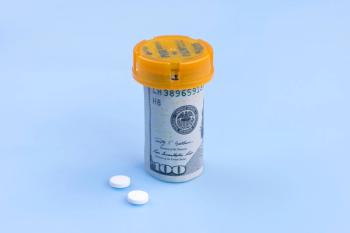
Medicare Part B Provider Status for Pharmacists: ‘A Unique Solution to a Specific Problem'
Ken Perez, MBA, vice president of healthcare policy and government affairs at Omnicell, discusses current legislation circulating the House and Senate to grant pharmacists provider status in underserved areas.
In a recent interview with Total Pharmacy®, Ken Perez, MBA, vice president of healthcare policy and government affairs at Omnicell, discussed the crucial points of pharmacist provider status in Medicare Part B, which would allow pharmacists in underserved communities to be reimbursed for certain primary care services that they already provide in commercially ensured populations. This bipartisan legislation is a surgical solution that is specific and pragmatic.
According to Perez, the bill, titled the Pharmacy and Medically Underserved Area Enhancement Act (H.R. 2759/S.1362), would be a unique solution to a very specific problem that affects both providers and patients. Ken clarified that, although there are many public misconceptions regarding provider status for pharmacists, the provisions would only be for those in underserved populations. He further explained the ways in which the bill is bipartisan, noting the primary care physician shortage that needs to be addressed.
“I call it a switch, in terms of solving a problem that’s been a long-standing problem,” Perez said. “And long-standing problems oftentimes don’t have quick fixes. Now, this is 1 approach that could really make a difference and help people who are particularly struggling in very specific areas and specific populations.”
If passed, starting January 1, 2022 pharmacists in medically underserved areas would be granted provider status, allowing up to 85% reimbursement of the physician fee schedule rate for certain primary care services that they already provide today."It’s to address some significant challenges that we face as a society,” Perez added.
The worsening shortage of primary care physicians is one of those challenges, Perez emphasized. “It’s estimated there are about 15,000 primary care physicians that we’re short of today and that’s projected to be 22,000 to 55,000 by 2030, so it has worsened and it will continue to worsen and there’s almost nothing we can do in terms of just getting more medical school graduates to fill those roles,” he said. “The main thing here is this is for medically underserved populations, which is about 1200 of the nation’s 3100 counties. Over 44 million Americans live in these areas and they don’t have as much access to primary care physicians and so pharmacists would help fill the void or gap that exists that is the basic idea.”
This legislation is particularly meaningful in light of the COVID-19 pandemic, which highlighted the critical role pharmacists play in health care delivery. “We’ve got to get as many people as possible vaccinated, and so pharmacists are in a unique position, both in terms of their training and knowledge and expertise, as well as their settings at retail pharmacies [and] outpatient facilities such as clinics,” Perez explained. "It certainty highlighted the role of pharmacists. This is going to continue. We’re going to have booster shots, this is not going to end with this first round. We have more and more of this to come.”
For the future of health care, “this whole area of immunizations is going to be a continuing challenge for us,” Perez added. “This positions pharmacists and allows them to play a new, second expanded role, specifically with the Medicare population.”
According to Perez, this legislation is about solving a societal problem and is not a blanket or across-the-board provision.
“There is no quick fix to getting primary care physicians into these areas. This [bill] provides a really unique solution that pharmacists are well-positioned to fill,” Perez explained. “One key point: there [are] 2000 retail clinics in the United States today. I estimate between 250 to 300, based on random corporate research that was done about 5 to 6 years ago, of those clinics [are] in these medically underserved areas. So this would free those clinics up to provide more primary care. In addition, it would provide an incentive for the pharmacy chains as well as the independents to open up more clinics in these areas. That’s all good in terms of providing a societal benefit and greater access to health care.”
Newsletter
Pharmacy practice is always changing. Stay ahead of the curve with the Drug Topics newsletter and get the latest drug information, industry trends, and patient care tips.























